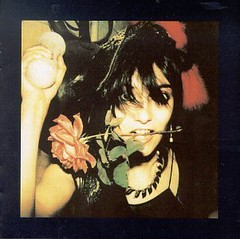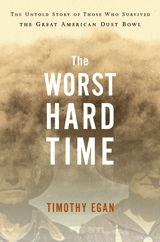Perhaps you’ve heard about
this report, which links ease of access to web-based motherlodes of music to listener apathy, and a devaluing of music in general. I’d link to the many blogs that have taken this up, but for this post, anyway, will refrain, because such links can be, for me, part of the problem.
Which isn’t the overwhelming availability of (free) music, but the time-sucking, addictive, overwhelming presence of recommendations for new music. I’ve turned into a pathetic consumer of music journalism; I’ve fallen down the blog-hole. Where ten years ago I might’ve got my music news from a handful of friends, the
Village Voice, the radio, and the occasional
Spin or
Pulse, I can now read the sometimes daily piquant assessments of an army of talented, opinionated writers (an uncommonly well-selected assemblage is
here for your browsing pleasure), from Canadian
Carl Wilson to Oregonian
Mike McGonigal to the ILX kids. I’m a music-porn addict.
I fetishize the information. My edge was lost so long ago I can’t cut cream cheese. And yet it’s all I can do to keep up with that never-ending tunnel of insidery music news that feels like connection and only later reveals itself, in the form of a vast empty feeling, as a waste of time. I’m collecting unpackaged, hand-lettered CD-Rs at a rate whereby the technology will be rendered obsolete by the time I absorb each disk. All based on solid information, mind you.
The upside, of course, is awareness of and access to a host of fantastic sounds I wouldn’t otherwise have encountered. No quibble there. The downside—and this extends beyond music—is nothing more that the loss of time, and serendipity, and a dangerously outgunned aesthetic sense. This is where the devaluing comes in, not from unfettered access to music, but the avalanche of copy that carries this music into the world. The same press release fatigue that must sap the enthusiasm of all but the hardiest journalists now creeps its way into the hearts of lowly bloggers.
Not that I blame the avalanche. It’s my choice to be buried. And maybe this is how the organism survives: only those able to maintain limits, deeply held loves and hates, equilibrium on the sea of words, lives to enthuse about the next big thing. I’m reminded of someone’s recent call to celebrate one’s inner nerd, the tastemaker in the machine, the one that pays no heed to hipsterism, lastest-thingism, or even the
NME. This is the struggle, one of the largest there is: with all-access passes to every gig going, what show do you catch? What’s your time worth? What do you like?
(No, not
you; that guy next to you. With the Rvng pin.)
Lines discovered this morning at 5am while experiencing unusually strong gastric distress, from John Berger (the
lines, not the distress):
Publicity is the life of this culture—in so far as without publicity capitalism could not survive—and at the same time publicity is its dream. ¶Capitalism survives by forcing the majority, whom it exploits, to define their own interests as narrowly as possible. This was once achieved by extensive deprivation. Today in the developed countries it is being achieved by imposing a false standard of what is and what is not desirable.
In other words, time to wake up. One might also add that
today (the Berger quote is from 1972) it is also being achieved via the opposite of deprivation.
Hm. I wonder what
SFJ has to say about all this…
UPDATE: SFJ, not so much, but the inimitable Paul Ford, he of
Gary Benchley fame, had something tangential to relate earlier last week, on the subject of fetishizing the object, sorta:
I think of my fascination, at 13, with the CD on the concrete in the office park. CDs had a brief chance to become objects of veneration, less time than vinyl, a few decades--just an eyeblink in time when compared to books, which have had over a millennia to build up mystique. So the CDs are easier to throw away. They don't resonate. But ultimately books are just as disposable (even the one I wrote).






